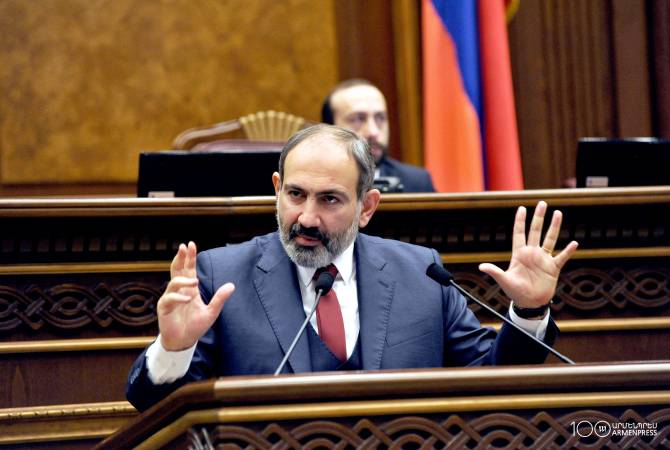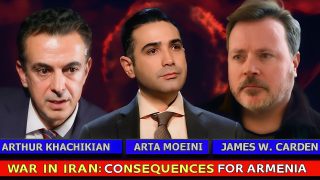To what extent is Azerbaijani government authorized to speak on behalf of their own people? – PM argues

Prime Minister Nikol Pashinyan has touched upon the Nagorno Karabakh conflict settlement process while speaking in parliament today about the government’s action plan.
Pashinyan presented the existing situation to lawmakers in detail, and then noted he asks himself to what extent is the Azerbaijani government authorized to speak on behalf of Azerbaijanis themselves.
“We [Armenia] are saying that the Prime Minister of Armenia, me specifically, can negotiate in the context of the NK conflict settlement on behalf of Armenia, and I can’t negotiate on behalf of Artsakh, because it wasn’t the people of Artsakh who elected me Prime Minister of Armenia and didn’t vote in the parliamentary election in Armenia, therefore it hasn’t authorized neither the parliament nor prime minister to proceed on behalf of it in negotiations anywhere. But the people of Karabakh have their own elections, they elect their parliament, their president, and therefore it has through elections developed bodies whom it has authorized to act on behalf of it. Therefore, we are saying that in the context of the NK conflict settlement a representative of Karabakh must [negotiate] on behalf of Karabakh. We note that we don’t plan to make decision instead of Karabakh, we only can make decision instead of ourselves. Although on the other hand we note that Armenia is the guarantor of security of Karabakh, and we say that a representative of Karabakh must sit at the negotiations table because back in the 1994 Budapest format Karabakh is acknowledges as a party to negotiations.
In response to this, Azerbaijan says they in turn will bring representatives of the Azerbaijani community of Karabakh to the negotiations, meaning those Azerbaijanis who have lived in Nagorno Karabakh in the past.
We say, those people are taking part in the negotiations today too, and have always participated because they are citizens of Azerbaijan, they participate in the parliamentary and presidential elections in Azerbaijan, their voting determines who is the president of Azerbaijan, therefore by participating in these elections they have their representative in the negotiations format, in person of the President of Azerbaijan.
Factually, with this the Azerbaijani leadership is saying that there are citizens in their country, I am speaking about Azerbaijanis that lived in Karabakh in the past, whom they don’t have a mandate of representing. If they say yes, we ask – are there any other citizens in your country whom the President of Azerbaijan is not representing? For example the Talysh minority, or Kirovabad, or the population of Ghazakh, is the Azerbaijani president representing them or not?
Therefore, a question arises, to what extent is the circle of these citizens broad, and to what extent is the incumbent Azerbaijani government authorized to negotiate on behalf of the Azerbaijani people,” Pashinyan said.
The latest meeting between Pashinyan and Azerbaijani President Ilham Aliyev took place in January 2019 during the World Economic Forum in Davos.

























